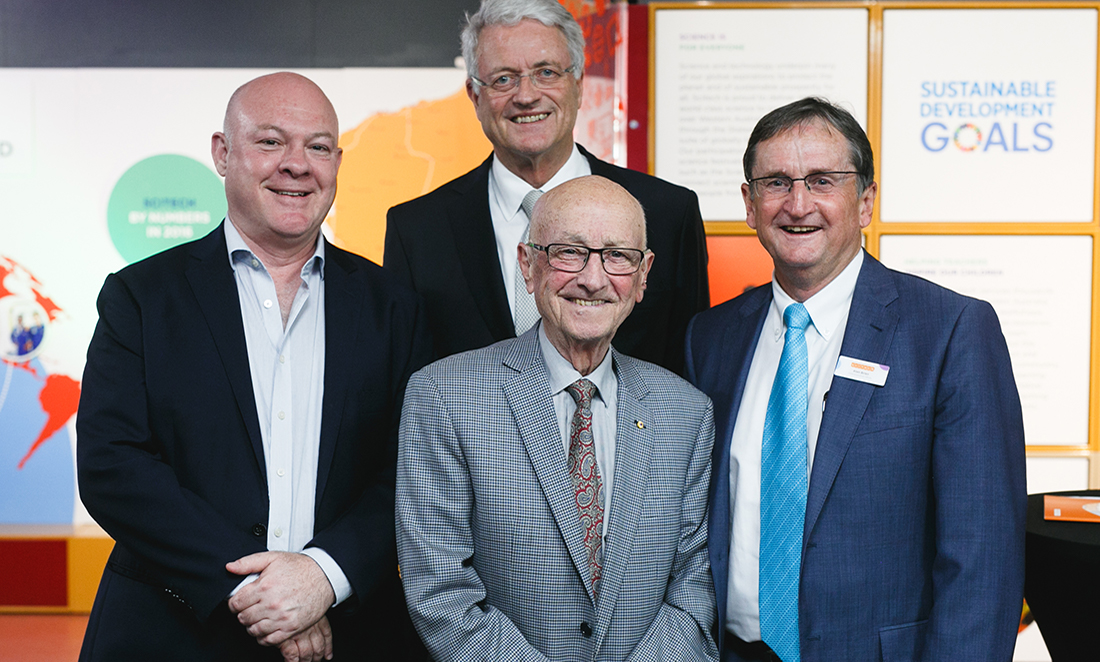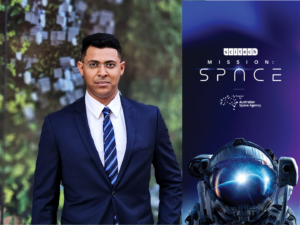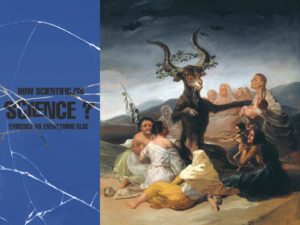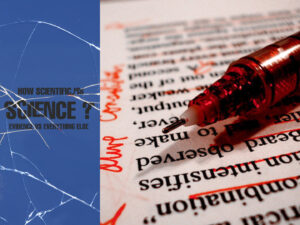WA science and technology would not be where it is today without the efforts of Dr Mal Bryce AO, a champion of innovation and technology.
In 1988, in his role as WA Deputy Premier, Dr Bryce was instrumental in the establishment of the Scitech Discovery Centre.
Former Scitech Board Chair Dr Michael Chaney AO says, “Mal was truly one of the fathers of Scitech. I would say THE father, but others including John De Laeter, Laurence Brodie-Hall and John Stokes share that honour. Mal was highly enthusiastic about the potential of Scitech to improve what’s now called STEM education to the benefit of the state.”
STEM education refers to the integrated teaching of science, technology, engineering and mathematics.
Dr Bryce would continue to support Scitech and its mission over the years and was active as an alumni even up until 2017.
He emphasised the importance of society embracing technology. Accordingly, he instigated several organisations that would allow West Australians to do so. He was instrumental in establishing Australia’s first Government Department of Computing and Information Technology, legislating the Western Australian Technology and Industry Development Act and setting up Technology Park, now home to some of WA’s most cutting-edge scientific research.
He left public office on 18 February 1988, and the next year, he was made an Officer of the Order of Australia.
In his post-political life, Dr Bryce led in the development of information and communications technologies (ICT) across Australia. He was a pioneer in the internet industry, instrumental in building Australia’s first online community in Ipswich, Queensland.
Jump to the 21st century, and Dr Bryce was to be found conducting key work in the implementation of the Pawsey Supercomputer. He is the only West Australian to have won the Pearcey Medal (2012), which recognises lifetime achievement in the ICT sector.
WA Premier Mark McGowan says Dr Bryce was “ahead of his time”.
More than just a dedicated politician and leader in ICT, Dr Bryce was respected as a family man. Mr Brian Burke, the Premier under which Dr Bryce served, said, “Mal’s commitment to the Labor Party was surpassed only by his commitment to his wife, Liz, and their family.”








